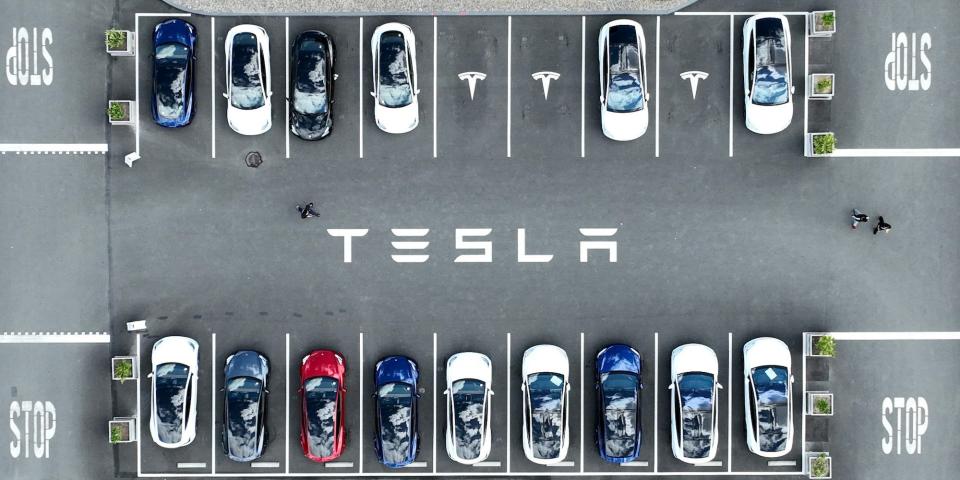Tesla stock hits 52-week low, extends 2024 decline to 43% after another round of price cuts

Tesla stock slid 4% on Monday, extending its YTD decline to 43% after the company slashed prices for its vehicles.
Tesla cut the prices of its vehicles in the US, China, and Germany, and it also reduced the price of its self-driving software.
"Tesla prices must change frequently in order to match production with demand," Elon Musk said.
Tesla stock slid to a new 52-week low on Monday after the EV maker initiated another round of price cuts for its vehicles.
The company cut the price of its Model Y, Model S, and Model X vehicles by about $2,000 in the US, and it initiated a round of price cuts in Germany and China as well as it faces a surge in competition. The US price cut comes just three weeks after Tesla slightly raised the price of its Model Y.
The company also cut the price of its Full Self-Driving software to $8,000 from $12,000 over the weekend.
"Tesla prices must change frequently in order to match production with demand," Elon Musk said on Sunday via X.
Shares of Tesla fell as much as 4% to about $140 per share, representing its lowest level since January 2023. The stock is down 43% year-to-date as the company reels from a slowdown in deliveries, swelling inventories, and a recall of all 4,000 Cybertrucks it has so far delivered.
Tesla investors were served a wake-up call earlier this month when the company announced first-quarter deliveries that badly missed Wall Street estimates. The company reported its first year-over-year decline in sales since early 2020, and its quarter-over-quarter sales decline was about 20%.
Contributing to the sales miss seems to be a surge in competition as more EVs hit the market, especially in China, where the company is engaged in a price war with domestic automakers like Li Auto and BYD. Li Auto cut its prices over the weekend by a range of about $2,000 to $4,000, matching Tesla's price cuts.
Tesla's market share in China fell to 6.7% in the fourth-quarter of 2023, compared to 10.5% at the start of 2023, according to Bloomberg.
Also weighing on Tesla investors is the company's apparent pivot away from producing a low-cost Model 2, and instead focusing its efforts on launching an autonomous robotaxi. That hasn't been received well by some of Tesla's most bullish analysts, including Wedbush's Dan Ives.
"If robotaxis is viewed as the 'magic model' to replace Model 2 we would view this as a debacle negative for the Tesla story," Ives said in a note earlier this month.
Read the original article on Business Insider

 Yahoo Autos
Yahoo Autos 